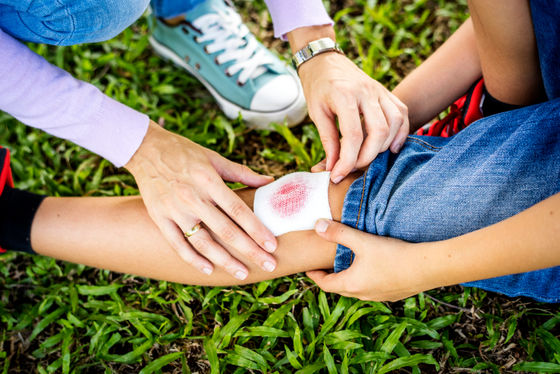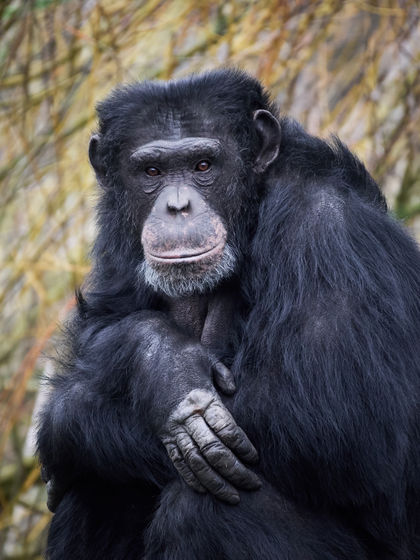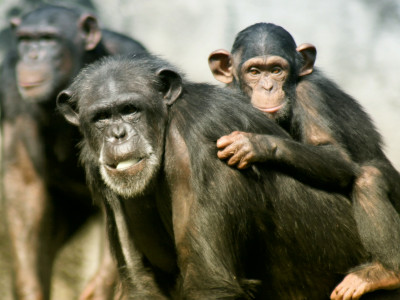It turns out that it takes three times longer for wounds in humans to heal than it does for monkeys, and the reason for the slower healing is that humans don't have hair

A new study confirms that humans heal from injuries much slower than primates, including our closest relatives, the chimpanzee, suggesting that at some point our human ancestors evolved to heal from injuries more slowly, scientists say.
Inter-species differences in wound-healing rate: a comparative study involving primates and rodents | Proceedings of the Royal Society B: Biological Sciences
Humans' Wounds Heal Much More Slowly Than Other Mammals' - The New York Times
https://www.nytimes.com/2025/04/29/science/wounds-healing-speed-humans.html
Humans may have evolved to heal 3 times slower than other mammals | Live Science
https://www.livescience.com/health/humans-heal-3-times-slower-than-our-closest-animal-relatives
When a human is injured, blood first coagulates to prevent bleeding, then immune cells such as neutrophils and macrophages rush to the wound to eliminate bacteria and clear away foreign bodies and dead tissue. After that, fibroblasts produce collagen, a material that makes up the skin, and new blood vessels are formed to supply nutrients, and the damaged body tissue is repaired.
This mechanism is called 're-epithelialization,' and chimpanzees and other animals use a similar process to heal injuries, but the healing speed of humans is said to be overwhelmingly slower than that of non-human primates.

To understand whether this feature is unique to humans and when it emerged in our evolutionary history, a team of researchers including primatologist
In the primate experiments, three primate species captured in the wild and then reared at the Kenya Primate Research Institute were anesthetized, had 40mm diameter wounds inflicted on them, and then the size and shape of the wounds were measured daily. Photographs of naturally inflicted wounds on five chimpanzees at the Kumamoto Sanctuary, run by the Wildlife Research Center of Kyoto University, were also analyzed. The team also examined wounds from 24 volunteers who had undergone surgery to remove skin tumors at the University of the Ryukyus Hospital, as well as wounds from rats and mice raised in the lab.
As a result, the skin of primates heals at a rate of 0.62 mm per day, which is roughly the same for mice, while humans heal at a rate of 0.25 mm per day, which is overwhelmingly slower. The graph below shows this. Compared to primates such as the Anubis baboon, chimpanzee, vervet monkey, and Sykes monkey, you can see how exceptional humans are.

'There are two important points from this study. First, it suggests that non-human animals may have an optimal healing rate. Second, it suggests that the slow wound healing rate in humans was acquired in the human lineage,' said Matsumoto.
Elaine Fuchs, a stem cell biologist at Rockefeller University who studies skin growth and repair and was not directly involved in the study, said the reason humans heal more slowly than monkeys is because of differences in body hair.
While hair follicles contain stem cells that normally only grow hair, they can also regenerate skin when needed. Human ancestors, on the other hand, lost most of their hair follicles and instead gained many sweat glands, which also contain stem cells but are much slower at repairing wounds.

This study suggests that the slower healing rate may have occurred relatively recently, after our ancestors split from chimpanzees six million years ago.
Although it seems counterintuitive to evolve to heal wounds more slowly, the researchers speculate that the loss of fur and the acquisition of superior sweating abilities may have helped our ancestors adapt to hot environments and cool their large brains more effectively. They also speculate that social support may have helped them survive, even if their wounds healed more slowly.
'Our evolutionary disadvantage was that our wounds healed more slowly,' Fuchs said. 'But we gained another advantage by losing our hair: we could wear a coat if we wanted.'
Related Posts:
in Science, Creature, Free Member, Posted by log1l_ks







